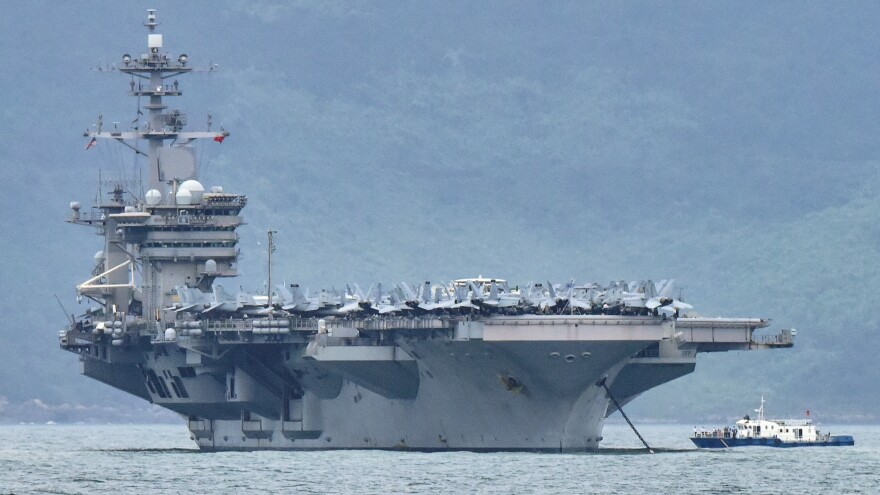A new delay emerged Wednesday for an expected decision by U.S. Navy leaders on the possible reinstatement of Capt. Brett Crozier, who was relieved of his command on April 2 of the coronavirus-plagued nuclear aircraft carrier USS Theodore Roosevelt.
Acting Navy Secretary James McPherson says that after reviewing a "preliminary inquiry" into developments related to the sickened warship with Chief of Naval Operations Adm. Michael Gilday, he wants a "deeper review" to address unanswered questions.
"Therefore, I am directing Adm. Gilday to conduct a follow-on command investigation," McPherson says in an emailed statement. "This investigation will build on the good work of the initial inquiry to provide a more fulsome understanding of the sequence of events, actions, and decisions of the chain of command surrounding the COVID-19 outbreak aboard the USS Theodore Roosevelt."
When several of his crew members tested positive for COVID-19 following a port call in Vietnam, Capt. Crozier appealed for a more decisive response in an emailed letter that leaked and was first published March 31 by The San Francisco Chronicle.
Crozier was removed two days later as the carrier's skipper — before an investigation had been completed — by then-Acting Navy Secretary Thomas Modly. The captain was cheered by his crew as he left the Roosevelt at a pier in Guam.
Modly then flew some 8,000 miles to deliver a 15-minute profanity-laced address aboard the Roosevelt, in which he said Crozier had either been "too naive or too stupid" to know his emailed cry for help would leak, or the skipper had intended his message to become public.
Modly's heated remarks on the warship quickly became public. And amid a storm of criticism, the acting Navy secretary resigned barely four months after President Trump installed him as the service's top civilian official.
McPherson, whom Trump appointed to succeed Modly as acting Navy secretary, was reported to have favored reinstating Crozier after reviewing the findings of the initial investigation last week.
But after being briefed on that review by McPherson and Gilday on Friday, Defense Secretary Mark Esper signaled there may not be a speedy resolution on Crozier's fate.
"After the Secretary receives a written copy of the completed inquiry, he intends to thoroughly review the report and will meet again with Navy leadership to discuss next steps," Jonathan Hoffman, who is Esper's spokesman, wrote in an emailed statement late Friday. "He remains focused on and committed to restoring the full health of the crew and getting the ship at sea again soon."
A source familiar with the matter who was not authorized to speak publicly told NPR that Joint Chiefs Chairman Gen. Mark Milley had pressed Esper for a more thorough review to make sure all questions were answered. Neither Milley's spokeswoman nor Esper's spokesman would comment.
But getting the Roosevelt sailing again may take time. Nearly a fifth of the ship's approximately 5,000 member crew has tested positive for COVID-19. One crew member has died of the disease in Guam, where the carrier remains docked.
Copyright 2021 NPR. To see more, visit https://www.npr.org.







